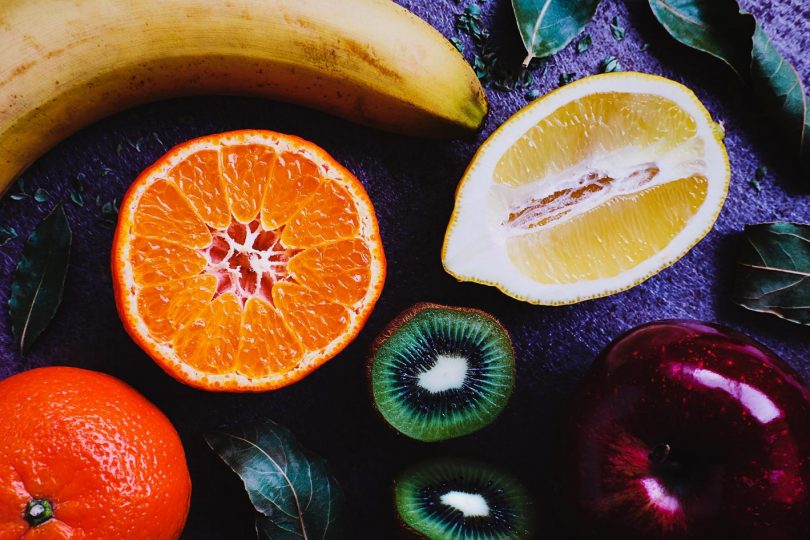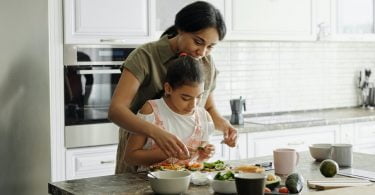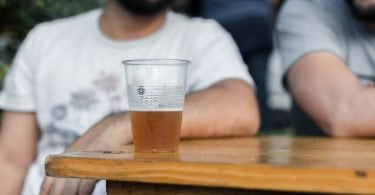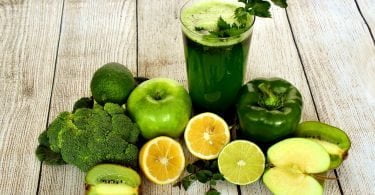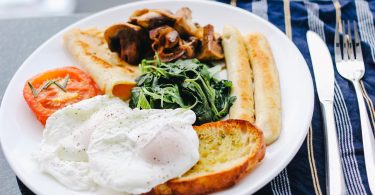According to Love Food Hate Waste, we throw away 7 million tonnes of food and drink from our homes each year. This costs around £470 for the average household in the UK. You could be saving yourself hundreds of pounds each year and helping the environment if you had kept that packet of apples, even if they did look a little bruised. We're going to look at the food that is safe to eat well after the sell by date, and how to use it up instead of it ending up in the bin.
Fruit and vegetables shouldn't even have a sell by date. If you grow them yourself, or pick them up from a market then they don't come with a sticker saying 'eat by the 23rd'. That's because they don't need one. With fruit and vegetables, the senses test is the best way of judging if they're edible or not. If you have a satsuma sat in the bowl that is covered in a furry mould then I'd suggest throwing it away, but just because the apple bag says they should be eaten today, if they look fine, smell fine and feel fine, then they'll be absolutely nothing wrong with them. Sometimes you can tell that fruit is going off. Bananas may be browning or the packet of plums might be a bit soft. If this is the case then use them in cooking. Mash the bananas with some flour, eggs and milk to make a banana loaf. Throw the soft plums in a pan with orange juice and cinnamon to stew. This means you're not wasting the fruit, you're giving it a new lease of life.

One of the most wasted food items is bread. In a warm kitchen, bread can go mouldy quite easily. It's understandable to not eat bread with mould on, but if you keep throwing bread away, keep it in the freezer, not the warm kitchen. Most toasters have a defrost button so it won't add any more time onto your breakfast routine and will save you a lot of pennies. If you want to make your sandwich in the morning, take a couple of pieces out of the freezer and leave in the fridge to defrost overnight. Freezing bread saves money and stops waste.
Store cupboard items such as flour, sugar, salt and oil often have very long use by dates. If you're a keen cook, it's likely you'll use everything up within the time period, but if not then think about your purchases. If you don't cook very often, try buying a small packet of flour instead of the larger one. Maybe keep only one bottle of oil in your cupboard instead of three. Small changes in your shopping routine can save wasting food. Try to plan what to buy, and use up store cupboard ingredients when making a meal.

When it comes to meat and fish, the use by date might have some importance. Nobody wants to end up with a bad batch of food poisoning, so if your sausages are a few days out of date, maybe find an alternative option for your mash. If you have meat or fish in your fridge then plan to use it up before the use by date. Maybe make a chicken curry and freeze it if you don't fancy it that night. It's important to use up what you have in your fridge so check the use by date of the salmon, and plan your meals accordingly.
Milk and eggs both come with a use by date on them. With milk, it is pretty easy to tell how fresh it is. If it has a thick layer on top and smells not so great, then it's time to pop to the shops and buy a new pint. With eggs, it's difficult to tell how fresh they are. Whilst they come with a use by date, they're usually fine to eat many days after. The way to test is to pop the egg in a bowl of water. If the egg floats at the top then it's not fresh, but if it sits on the bottom then it's still fine to scramble, poach or fry.
Over 50% of the food and drink thrown away from our homes is fine to eat. Next time you're tempted to throw away the brown bananas or carton of milk think again. By planning your meals, thinking about how to store food and what to buy, you could save yourself a lot of money and improve your carbon footprint too.
Facts from Love Food Hate Waste (http://www.lovefoodhatewaste.com/node/2472)

